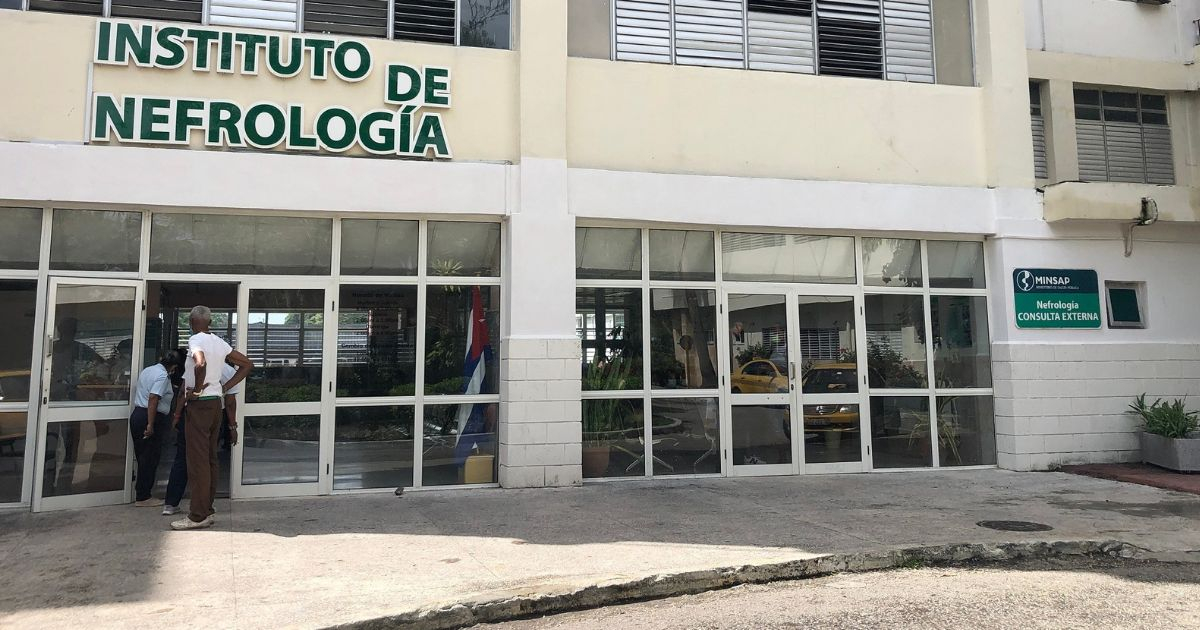Yarianna Arce Salomón, a specialist in General Integral Medicine and General Surgery, has taken to social media to reveal the collapse of the healthcare system in Cuba and the alarming shortage of essential medical supplies for treating renal patients.
On Facebook, Arce laid bare the harsh reality facing her husband, a 38-year-old man suffering from renal failure who relies on peritoneal dialysis to survive. Despite this treatment being a priority, it has become unsustainable due to the lack of resources.
While the Cuban doctor expressed gratitude for the efforts of the medical team at the National Institute of Nephrology, led by Dr. Yanet, she pointed out that these efforts are in vain if the Ministry of Public Health does not ensure the necessary supplies to maintain the treatment.
"Now, besides being terminally ill, we also have to endure the lack of minimal resources to keep the treatment stable," she lamented.
According to Arce, the situation has reached a critical point: there are no peritoneal dialysis bags available for patients. The desperate alternatives offered are hemodialysis, which is also affected by the resource shortage, or facing death.
"Why do we have to suffer so much to stay here in Cuba? Why are we abandoned in this way with such a simple resource?" she asked indignantly.
Arce revealed that no renal transplants have been conducted in the country for over four years due to the same resource scarcity.
Critical Shortage in Cuban Healthcare
In a nation that boasts "advanced medicine" and high scientific standards, it is inconceivable that such a basic resource as dextrose cannot be guaranteed for a small group of patients who depend on it to live.
"There are around 80 patients on this treatment in the entire country, and the resource cannot even be guaranteed for them," she noted.
The doctor harshly criticized the inefficiency of the Cuban healthcare system, stating that it seems more focused on political speeches and empty promises than on solving the real problems affecting citizens' lives.
"We keep wasting time in meetings, lost in politics, talking about how much they want to do, but they do nothing, and our loved ones continue to suffer, and we keep losing them due to the lack of management and the incompetence of people who do not care about the situation," she denounced angrily.
Arce expressed her deep disappointment with the sector to which she has dedicated her life: "I am ashamed to belong to this medical guild, I regret having studied so much for nothing, I feel betrayed by the very sector to which I belong and from which perhaps it would have been better not to be part," she concluded, reflecting the sentiment of many healthcare professionals who face the harsh reality of a collapsing system daily.
Finally, she mentioned that her husband "continues to wait for a transplant that never comes. I don't know how we got to this point, but I do know that I cannot remain silent in the face of so much insensitivity and injustice."
In this context of extreme scarcity in healthcare institutions, while the regime in Havana continues to send specialists on missions to other countries, Cubans are increasingly exposing cases of medical negligence on social media.
Evidence of this dire situation was the recent death of Dr. Roberto Edelso Ramírez in the province of Cienfuegos due to the lack of medical supplies for coronary care patients. His son, Edgar Ramírez Turiño, denounced on Facebook that the lack of essential medical supplies and equipment, as well as the apparent lack of response from the staff, led to the fatal outcome at the Gustavo Aldereguía Lima Hospital and demanded an answer from the authorities.
At the beginning of August, a young Cuban mother residing in Holguín reported that her 20-day-old son died due to medical negligence in a hospital in that province. Arlety González, from the Negrito neighborhood in the municipality of Antilla, told the independent outlet CubaNet that it all began on January 24th when her baby fell ill. After a fatal outcome, she was told to "come to terms with the idea that he didn't exist. That he never existed."
Understanding the Healthcare Crisis in Cuba
The following questions and answers provide more insight into the critical healthcare situation in Cuba, particularly concerning the treatment of renal patients.
What is causing the healthcare collapse in Cuba?
The healthcare collapse in Cuba is primarily due to a significant shortage of essential medical supplies and resources. The inefficiency and mismanagement of the healthcare system, coupled with political prioritization over practical solutions, exacerbate the problem.
How are renal patients being affected by the healthcare crisis?
Renal patients in Cuba are severely affected as there are no peritoneal dialysis bags available, forcing them to either undergo hemodialysis, which is also resource-deprived, or face a slow death. The lack of transplants for over four years further worsens their situation.
What has been the response of the Cuban government to this crisis?
The Cuban government has largely focused on political rhetoric and sending medical professionals on international missions, rather than addressing the internal healthcare crisis. This has resulted in widespread neglect and frustration among the Cuban population.
Are there any recent examples of medical negligence in Cuba?
Yes, recent examples include the death of Dr. Roberto Edelso Ramírez due to the lack of supplies for coronary care and the death of a 20-day-old baby in Holguín due to medical negligence. These cases highlight the severe deficiencies in the Cuban healthcare system.
